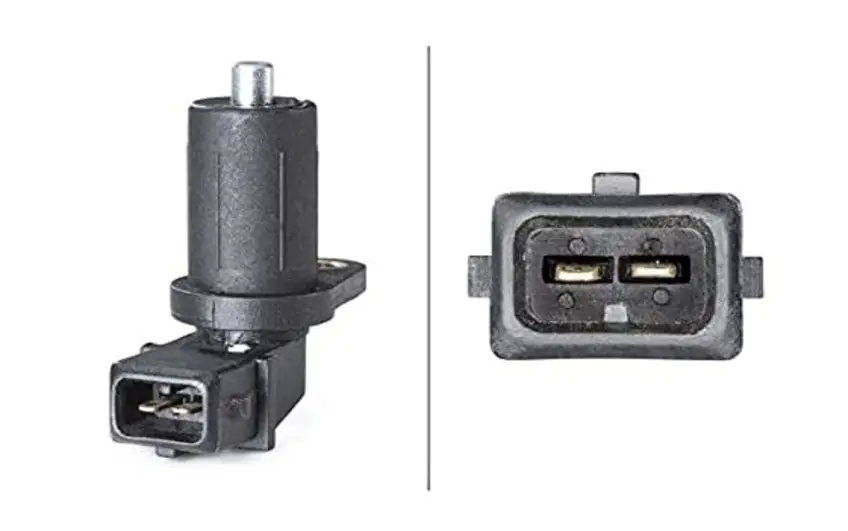Yes, a faulty crankshaft position sensor can cause engine misfires. The sensor provides critical data to the ECU for proper ignition timing, and when it malfunctions, it can lead to mistimed ignition or incorrect fuel injection, resulting in misfires. This can cause rough idling, poor engine performance, and even stalling. Prompt diagnosis and replacement of a faulty CKP sensor are essential to avoid further engine damage.
The crankshaft position sensor (CKP sensor) is a critical component in modern internal combustion engines. It plays a vital role in ensuring the engine runs smoothly by monitoring the position and rotational speed of the crankshaft. This information is sent to the engine control unit (ECU), which uses it to adjust fuel injection and ignition timing. However, when the CKP sensor malfunctions, it can lead to a variety of engine issues, including misfires.
Contents
How Crankshaft Position Sensor Cause Misfire
A misfire occurs when one or more cylinders in the engine fail to ignite the air-fuel mixture at the right time. Misfires can be caused by several factors, including fuel delivery problems, ignition issues, or sensor failures. Here’s how a faulty CKP sensor can contribute to misfires:
- Incorrect Timing Signals: The CKP sensor provides critical data to the ECU for ignition timing. If the sensor is malfunctioning, it might send incorrect signals, causing the ECU to mistime the ignition. This mistiming can result in incomplete combustion or no combustion at all, leading to a misfire.
- Disrupted Fuel Injection: Besides ignition timing, the CKP sensor also influences fuel injection timing. A faulty sensor might cause the ECU to inject fuel at the wrong time, leading to a lean or rich air-fuel mixture. If the mixture is too lean (not enough fuel) or too rich (too much fuel), it can cause a misfire.
- No Start Condition: In severe cases, if the CKP sensor fails entirely, the ECU may not receive any signal, preventing the engine from starting. Even if the engine starts, it may run erratically, with frequent misfires due to the lack of proper timing information.
- Intermittent Performance Issues: A failing CKP sensor might not fail completely but can send intermittent signals. This can lead to sporadic misfires, where the engine runs fine at times but misfires at other times. Such intermittent issues can be challenging to diagnose.
- Engine Stalling: In some cases, a faulty CKP sensor can cause the engine to stall, particularly at idle or low speeds. This stalling can be accompanied by misfires as the ECU struggles to maintain proper engine timing.
How to Prevent Crankshaft Position Sensor Cause Misfire
While you cannot entirely prevent a CKP sensor from failing, regular maintenance can help mitigate the risks:
- Regular Inspections: During routine maintenance, have the CKP sensor and its wiring inspected for any signs of wear or damage.
- Prompt Repairs: If you notice any symptoms of a failing CKP sensor, address them immediately to avoid further damage to the engine.
- Use Quality Parts: When replacing the CKP sensor, use high-quality OEM or equivalent parts to ensure reliability and longevity.

Related Article
Can Crankshaft Position Sensor Cause No Spark?
Can Crankshaft Position Sensor Cause No Crank?
Frequently Asked Questions
Here are some FAQs about the misfire caused by crankshaft position sensor
1. Can a crankshaft position sensor cause a car not to start?
Yes, a faulty crankshaft position sensor can prevent the engine from starting because the ECU relies on the sensor’s data to initiate the ignition process.
2. How much does it cost to replace a crankshaft position sensor?
The cost of replacing a crankshaft position sensor varies by vehicle make and model, but it typically ranges between $100 and $250, including parts and labor.
3. Can I drive with a bad crankshaft position sensor?
Driving with a bad crankshaft position sensor is not recommended as it can lead to engine misfires, stalling, and potentially cause further damage to the engine.
4. How long does a crankshaft position sensor last?
Crankshaft position sensors are designed to last the lifetime of the vehicle, but they can fail prematurely due to wear, heat, or electrical issues.
5. Will a crankshaft position sensor always trigger a check engine light?
A failing CKP sensor often triggers a check engine light, but not always. In some cases, the sensor might cause intermittent issues without immediately triggering the light.
Conclusion
A crankshaft position sensor is integral to the smooth operation of an engine. When it fails, it can lead to severe engine performance issues, including misfires. Understanding the role of the CKP sensor and the symptoms of its failure can help in diagnosing and addressing misfire problems promptly. If you suspect your CKP sensor is faulty, it’s crucial to have it checked and replaced if necessary to maintain your engine’s health.